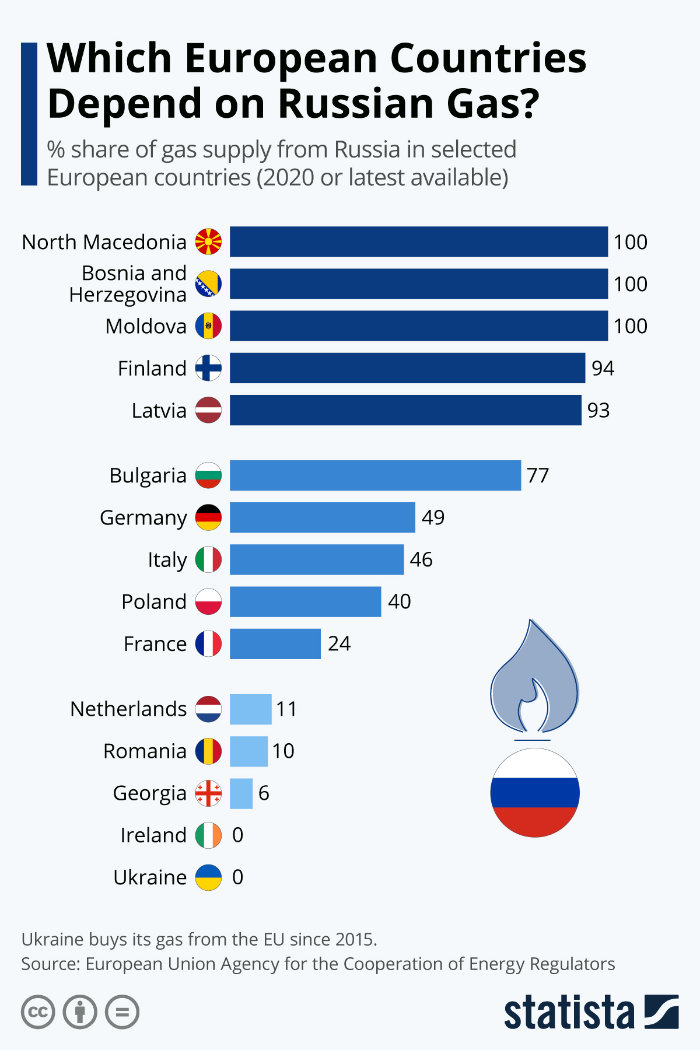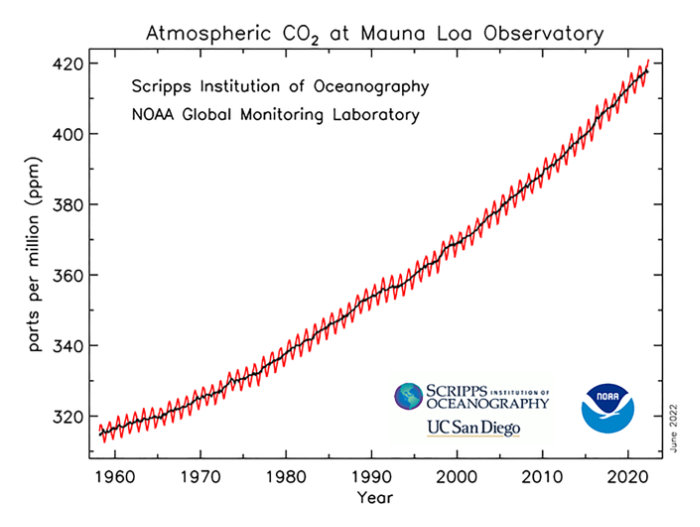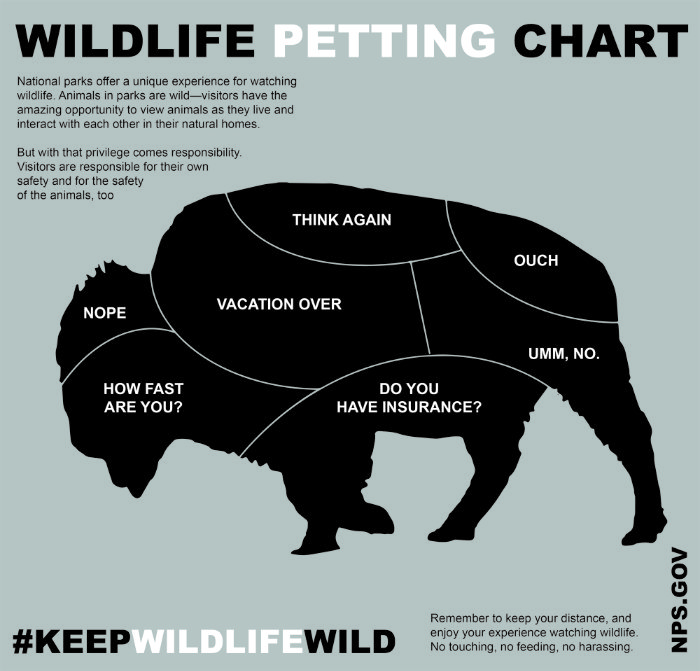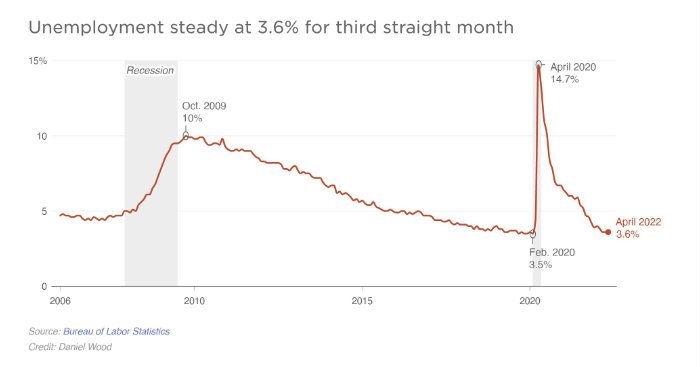In short:
- By 2030, almost half the global population will experience severe water stress
- CO2 levels in the atmosphere just reached the highest in human history
- There’s still a narrow chance that the US will avoid a hard recession
Economy, food security, supply chain
Every American is affected by inflation but in different ways. Consumers with more income continue to splurge, but the combination of high spending and high inflation could have many running out of savings by the end of this year. Low-income shoppers, or those with less flexibility, are cutting back faster than expected, opting for cheaper items, or buying a little at a time. Not necessarily connected to inflation, but debt has risen among older people (and they’re more likely to have multiple medical diagnoses).
Here is a simple personal inflation calculator—it might not have a practical purpose, but it can be helpful to understand how inflation is affecting someone personally. As an example, I don’t have children nor do I drive much on a daily basis, but eat out often and take a couple of trips yearly, and my personal rate of inflation is 6.9%, compared to the US national average of about 8.3%.
Five months after the child tax credit ended, nearly half of families with children can no longer afford enough food. People are dipping into their emergency savings instead of saving for the future, according to most survey respondents. Unsurprisingly, US food banks are experiencing a surge in demand. But inflation and fewer donations make it difficult for them to meet demand.
Abbott restarted the production of baby formula. The earliest it could hit the shelves is in three weeks. Abbott will prioritize the production of its EleCare specialty formulas for infants with severe food allergies and digestive problems who have fewer nutrition options. More shipments from abroad are on their way, too. If using a foreign formula, parents will need to pay attention to different mixing instructions.
SNAP benefits can be used to purchase seeds and plants to start a food garden:
Thinking of growing your own food? Use your SNAP benefits to get started! Learn more: https://t.co/cC57BwGvOX #PeoplesGarden pic.twitter.com/8NtB2Pn0lK
— Dept. of Agriculture (@USDA) June 3, 2022
Goldman Sachs economists believe there is still a narrow chance the US might avoid a hard recession. Morgan Stanley is also seeing some encouraging signs inflation is cooling and that some of the worst supply-chain disruptions are improving. The job market is still hot, and unemployment rates are near a pre-pandemic low:

The US waived tariffs on solar panels from four Southeast Asian countries for two years. The initiative comes in the wake of concerns about the freezing of solar projects nationwide. The US is considering lifting tariffs on other goods too in order to rein in inflation.
Ford is investing $3.7 billion across three facilities in Michigan, Ohio, and Missouri. The move will create 6,000 jobs and most of the production will be aimed at producing or assembling electric vehicles.
Germany and other European countries would face a recession if energy imports from Russia were halted. Even though dependence on Russian gas varies within the EU, the EU’s GDP could be slashed by 2.5 to 4.2 percentage points if gas imports from Russia stopped.

Hospitals in Lebanon are running out of medicine and staff due to an ongoing economic crisis. Currently, Lebanon’s economy is undergoing a devastating economic crisis, which has caused severe shortages of everything from food to fuel to medicine.
Climate, environment, and extreme weather
CO2 levels in the atmosphere just reached the highest in human history. Carbon dioxide is one of the most important greenhouse gases linked to climate change as it lingers in Earth’s atmosphere for centuries. While it’s naturally found in trace levels in Earth’s atmosphere, the concentration of this heat-trapping gas has been rising since the Industrial Revolution in the 19th century due to human activities like burning fossil fuels and deforestation.

The US can reduce greenhouse gas emissions by 50% by 2030 if it implements several strategies, according to a new study. These include having 80% clean energy on the grid and making sure most cars sold by the end of the decade are electric. The main impediment to achieving the goals is not a matter of costs, but rather a coordinated effort among policymakers and other stakeholders.
A new report warns that more than 40% of Earth’s land surface needs to be preserved to stop the biodiversity crisis. A quarter of the planet’s population, roughly 1.87 billion people, live in areas that need conservation attention, largely in developing countries in Africa, Central America and Asia. A draft global treaty is due to be finalized in the third quarter of this year.
High-resolution satellite data shows that the Alps are turning greener due to global warming. Vegetated areas above the treeline have increased by 77% since 1984 and snow cover is decreasing. Further heating will melt glaciers and thaw permafrost, which may cause mudflows, rockfalls, and landslides. The spread of plants at high altitudes could paradoxically threaten many Alpine plants, which are hardy, but not very competitive.
Tests show that car tires produce more particle pollution than exhaust. Other research suggests tire particles are major sources of microplastics polluting the oceans. California has proposed banning a chemical used in tires that’s linked to salmon deaths. There’s no regulation on the wear rate of tires and not much on the chemicals they contain.
Global plastic waste is set to almost triple by 2060, according to the Organisation for Economic Co-operation and Development (OECD).
Tropical Storm Alex, the first named storm of the Atlantic hurricane season, killed three people in Cuba, flooded Florida, and lashed Bermuda. The storm’s appearance was unusually early for the Atlantic hurricane season, but it is not unprecedented for Florida:
Drone shots showing #flooding in Little Havana and downtown #Miami #FlWx #flood pic.twitter.com/laH5ARNvth
— WxChasing- Brandon Clement (@bclemms) June 4, 2022
Climate change is forcing US schools to close early for ‘heat days’.
Drought is causing water cuts, famine, and sinking land
California farmers are struggling. Researchers at the University of California, Merced estimate the drought cost the state’s agriculture industry $1.1 billion last year. About 385,000 acres in the Central Valley were also idled due to the drought. The drought was also linked to the loss of nearly 8,750 full- and part-time jobs across the state. Rural communities in California are already tapped out. A farmer from Central Valley is saying that “this part of the state is slowly dying” and “I tell my grandkids as soon as you get out, leave this area.” The drought in California has also caused entire towns to sink nearly a foot in just one year. Subsidence will likely continue for decades or centuries, but aquifers could recover with a significant rise in water levels, according to researchers at Standford.
Colorado will lose half its snow by 2080 and look more like Arizona, a new study shows.
Monterrey, Mexico is limiting water access to six hours a day. Temperatures above 40C (104F) have caused the state of Nuevo Leon to declare an “extreme drought” state of emergency back in February. The region has seen less rain than expected since 2015.
In Chile, water has become a national security issue. Pablo García-Chevesich, a Chilean hydrologist working at the University of Arizona said “It’s the biggest problem facing the country economically, socially and environmentally. If we don’t solve this, then water will be the cause of the next uprising.”

17 million people across Somalia, Kenya, Ethiopia, Sudan, and South Sudan are suffering from famine due to drought. More than 286,000 people in Ethiopia have been displaced from their homes, and over 1,100 schools are closed, leaving young girls especially vulnerable to sexual and physical violence, child labor, and early marriage.
Water security is now a key US foreign policy priority. Almost half of the global population will experience “severe water stress” by 2030 due to climate change and population growth. Research shows that water scarcity increases conflict, and conflict over water and migration could end up “creating additional demands on US diplomatic, economic, humanitarian, and military resources.”
The rest
Staffing shortage forces some summer camps to trim or cancel all programs.
American’s CEO says the airline has grounded 100 planes due to a lack of pilots.
The governor of New York has signed a law raising the age to own a semiautomatic rifle to 21.
Every single patient in a drug trial saw their rectal cancer go away. The trial size was small but the result promising. Cancer remission in every trial patient may be unheard of for a cancer drug intervention.
Covid vaccinations for children under five could be administered as early as June 21.
Last week, a man was killed by an alligator while searching for frisbees in a Florida swamp, and a woman was gored by a bison she approached while visiting Yellowstone National Park. Here are four essential reads on enjoying wildlife, and a useful chart:



You are reporting the comment """ by on